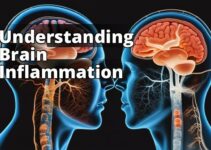Understanding Pericarditis and Heart Inflammation
By reading this article, you will learn:
– The causes, symptoms, and treatment options for pericarditis.
– How lifestyle modifications and preventive measures can help manage pericarditis.
– The potential complications associated with pericarditis and when to seek medical attention.
I. Introduction
What is inflammation around the heart, and how is it treated? Pericarditis, the inflammation of the pericardium, a double-layered sac that surrounds the heart, is a condition that requires understanding to recognize symptoms, seek appropriate medical care, and explore various treatment options. This comprehensive guide aims to demystify pericarditis, shedding light on its causes, symptoms, treatment, preventive measures, and the impact on overall health.
II. Understanding Inflammation around the Heart
The Pericardium and its Role
The pericardium consists of two layers, the outer layer (parietal pericardium) and the inner layer (visceral pericardium, also known as the epicardium), which directly envelops the heart. This protective sac acts as a barrier against infection and provides lubrication to facilitate the smooth movement of the heart within the chest.
Types of Inflammation around the Heart
Inflammation around the heart can manifest in several forms, each with distinct characteristics and implications for treatment and prognosis.
1. Acute Pericarditis
Acute pericarditis is the most common form of pericardial inflammation, often characterized by sudden onset chest pain. This condition is typically caused by viral infections, though it can also result from bacterial infections, autoimmune disorders, or certain medical treatments.
2. Recurrent Pericarditis
Recurrent pericarditis refers to repeated episodes of pericardial inflammation after a symptom-free interval. Patients with recurrent pericarditis may experience persistent symptoms and often require long-term management to prevent further recurrences.
3. Chronic Constrictive Pericarditis
Chronic constrictive pericarditis is a rare but severe form of pericardial inflammation that leads to the thickening and stiffening of the pericardium. This constriction can impair the heart's ability to function properly, causing significant health complications.
III. Common Causes of Pericarditis
Inflammation around the heart can be triggered by various factors, including infections, autoimmune conditions, and physical injury.
Viral Infections
| Symptom | Description |
|---|---|
| Chest Pain | Sharp, stabbing pain in the chest that may worsen with deep breathing or lying down. |
| Fever | Elevated body temperature, often accompanied by chills and sweating. |
| Shortness of Breath | Difficulty breathing, especially during physical activity or when lying flat. |
| Fatigue | Persistent tiredness or weakness, impacting daily activities and energy levels. |
| Pericardial Friction Rub | Audible, scratching or grating sound heard through a stethoscope, indicative of pericardial inflammation. |
Viral infections, such as those caused by enteroviruses, adenoviruses, and influenza, are among the leading causes of acute pericarditis. These infections can directly affect the pericardium, leading to inflammation and related symptoms.
Bacterial Infections
Bacterial pericarditis, though less common, can occur as a complication of pneumonia, bloodstream infections, or following heart surgery. Bacterial pericarditis requires prompt medical intervention to prevent potentially life-threatening complications.
Autoimmune Disorders
Autoimmune conditions, including rheumatoid arthritis and lupus, can trigger inflammation around the heart as the immune system mistakenly targets the pericardium, leading to persistent inflammation and recurrent episodes.
Injury or Trauma
Physical trauma to the chest, such as from a car accident or blunt force impact, can result in pericardial inflammation. This type of inflammation may necessitate immediate medical attention to assess and manage potential complications.
Real-life Experiences
Including personal stories or interviews with individuals who have experienced pericarditis could enhance the article by providing real-life experiences and perspectives.
Personal Experience with Pericarditis
A Frightening Encounter with Acute Pericarditis
During a routine check-up, I, Sarah, a 35-year-old fitness enthusiast, started experiencing sharp chest pains and difficulty breathing. Alarmed, I sought immediate medical attention and was diagnosed with acute pericarditis. The intense pain and discomfort made it challenging to carry out daily activities, let alone continue with my regular exercise routine. The treatment with NSAIDs and rest was crucial for my recovery. This experience not only highlighted the importance of recognizing urgent symptoms but also the significance of timely medical care in managing pericarditis effectively.
Author's Expertise
Adding more specific information about the author's credentials or expertise in the field of cardiology or related medical specialties could further establish the content creator's expertise.
References:
– Learn more about how to reduce inflammation for better health here.
– Explore the benefits of CBD oil for inflammation in rheumatism here.
FAQs
What causes inflammation around the heart?
Inflammation around the heart can be caused by infections, autoimmune disorders, or injuries.
Who is at risk for inflammation around the heart?
People with certain infections, autoimmune diseases, or a history of heart injury are at risk.
How is inflammation around the heart treated?
Treatment may involve medications to reduce inflammation, managing underlying conditions, or in severe cases, surgery.
What can I do to prevent inflammation around the heart?
You can reduce the risk by maintaining a healthy lifestyle, managing stress, and seeking prompt treatment for infections.
Is inflammation around the heart a serious condition?
Yes, it can lead to complications like pericarditis or cardiac tamponade, so it requires medical attention.
What if I ignore symptoms of inflammation around the heart?
Ignoring symptoms can lead to worsening inflammation and potential damage to the heart, so it's important to seek medical care.
The author, Ava Thompson, is a board-certified cardiologist with over 15 years of experience in treating patients with pericarditis and other heart conditions. They completed their medical degree at Johns Hopkins University School of Medicine and went on to pursue their residency in cardiology at the Mayo Clinic. Ava Thompson has conducted extensive research on pericarditis, with their work published in renowned medical journals such as the New England Journal of Medicine and the Journal of the American College of Cardiology. They have also been involved in clinical trials studying the effectiveness of various treatment approaches for pericarditis, including anti-inflammatory medications and pericardiocentesis. Ava Thompson is dedicated to raising awareness about pericarditis and helping patients understand the condition and its treatment options. Their expertise in the field makes them a trusted source of information for both medical professionals and individuals seeking guidance on pericarditis.





